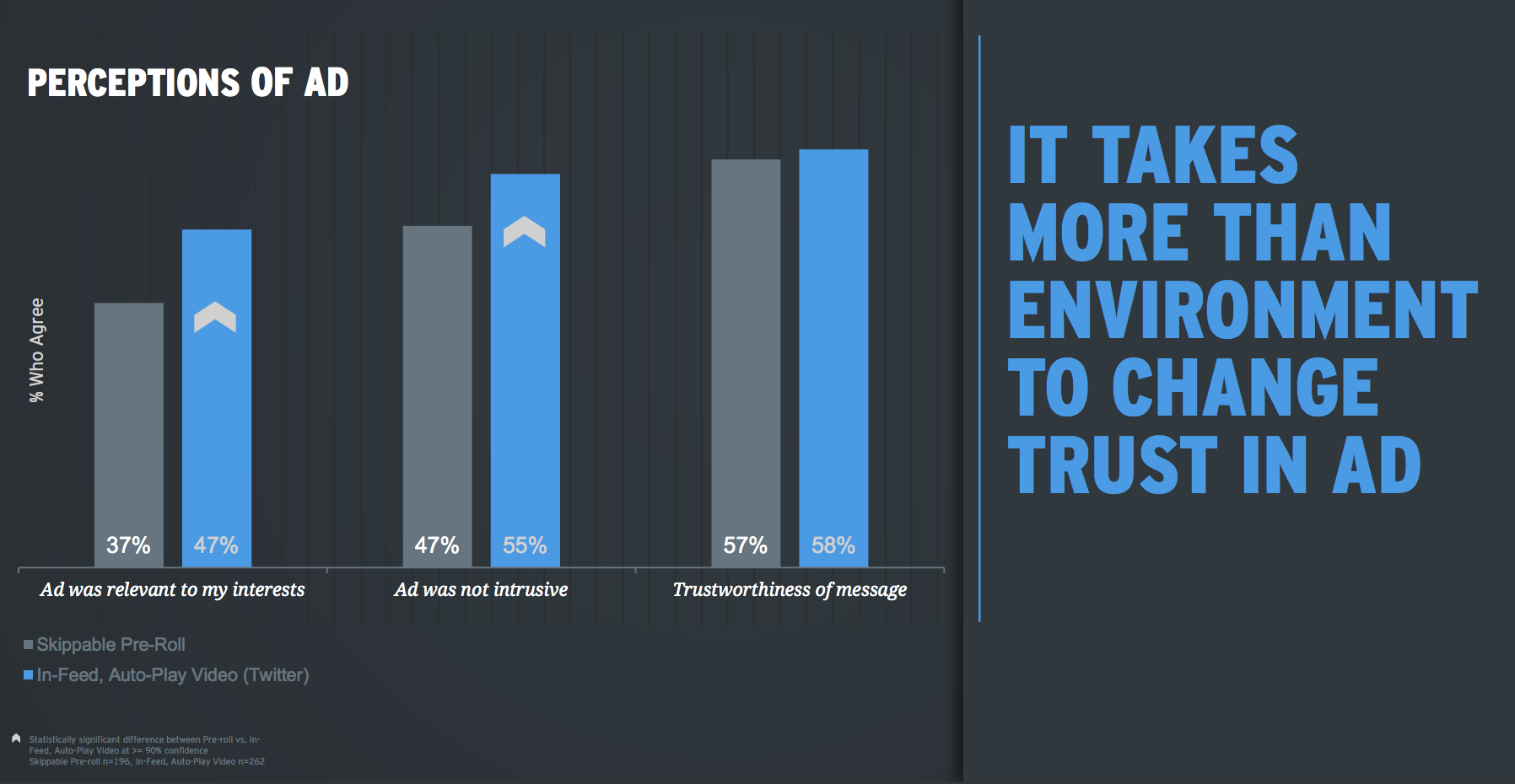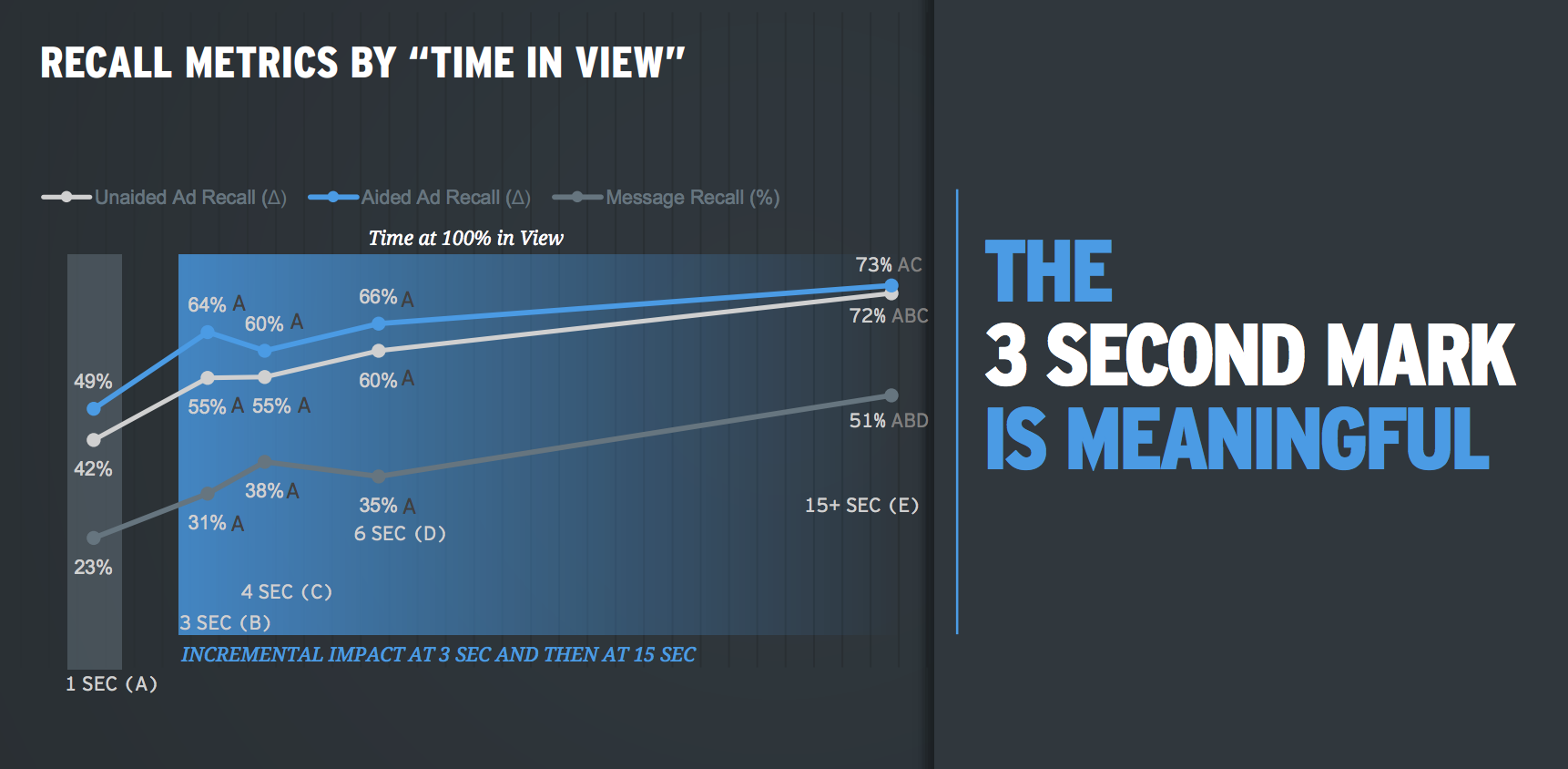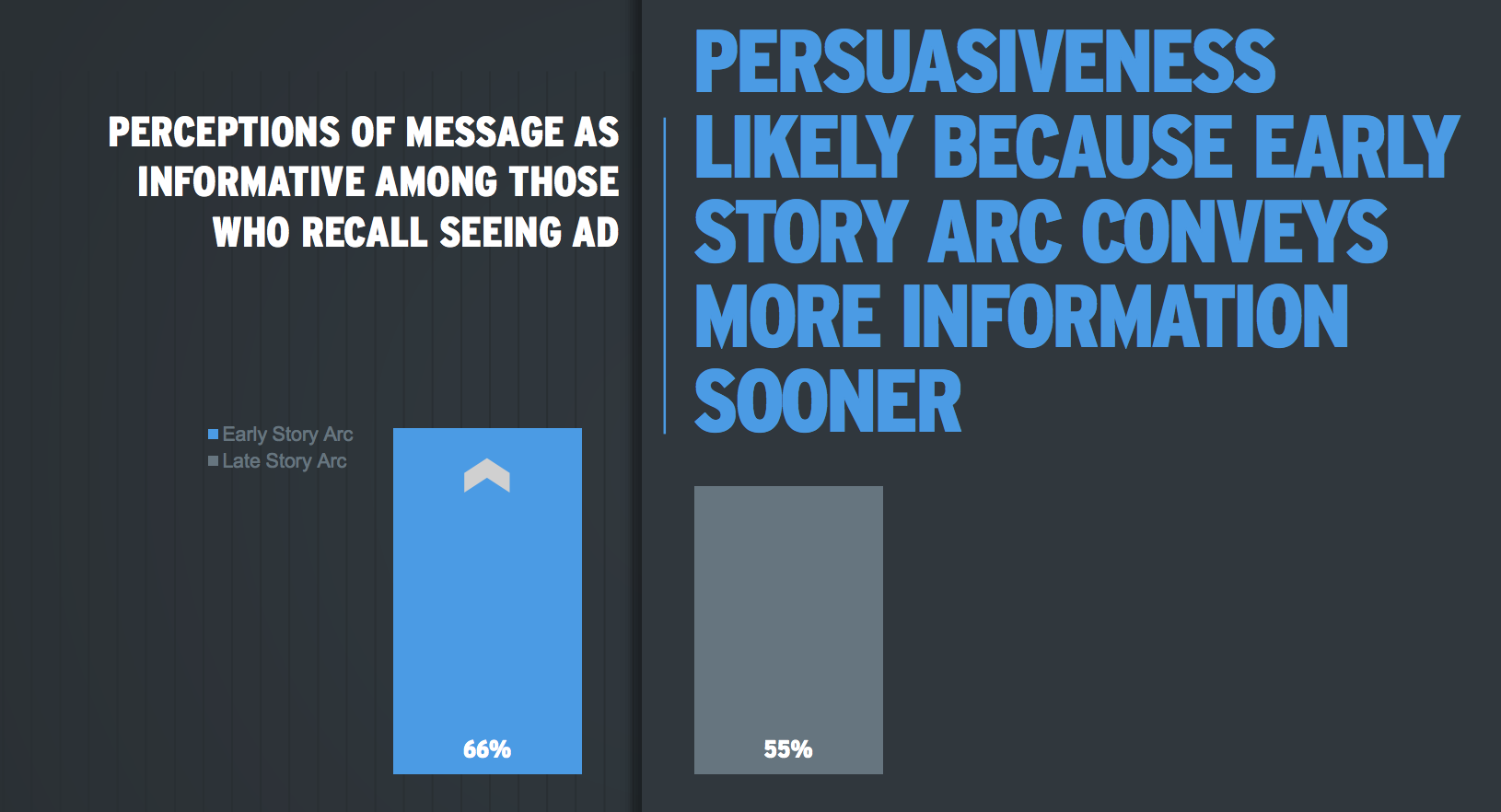As video content in social media increases, how can brands use it more effectively?
Video consumption is on the rise and while users enjoy it, brands face the challenge of creating more effective video ads to stand out in the overcrowded social feeds.
How do you measure the effectiveness of a video in social media and what makes it appealing in just a few seconds?
IPG Media Lab partnered with Twitter to examine how social video works and we are highlighting the most interesting points from the report.
In-feed, auto play video for relevance and trust
Auto play video ads that show up in a curated feed are considered more relevant, trustworthy and non-intrusive, comparing to skippable pre-roll ads.
People seem to feel that relevant ads are less intrusive, which highlights the importance of targeting the right audience before delivering an ad to their feeds.
The better the targeting, the less annoyed people will be.
Social video boost brand favourability
As in-feed video ads gain users' trust, they are also more likely to increase the brand's favourability, even with a single exposure to them.
Social videos seem to have greater impact compared to skippable pre-roll ads, despite the shorter time spent on them.
This means that brands need to capture immediately the audience's attention and deliver the best message from the very first seconds. It may be challenging, but it also leads to an increased ad recall.
Viewability increases ad recall and awareness
Viewability, or else time in view, marks whether a video is interesting enough to appeal to the audience. The first three seconds seem to be important, as they serve as the critical point where users decide whether they should keep watching a video.
Thus, a brand has to be creative in less than three seconds to ensure that it captures the viewers' attention. The longer the view, the higher the awareness and the ad recall.
Telling story early
As the first three seconds of a video are crucial, a brand should invest in a powerful message that is transmitted from the very first second.
An early story arc may be more persuasive if it conveys the right information as it can create the right context for the rest of the video. What's more, ad recall may be easier, linking the brand with the story.
The impact of branding
There may be a general consensus on how excessive branding can negatively affect a brand's content, but this is not necessarily true for social videos.
When you have a few seconds to explain the aim of the video, heavy branding may be useful, as it manages to create the necessary association between the story and the brand.
The goal of every video is to improve a brand's awareness of a brand, or even to boost ad recall and if heavier branding can facilitate this process from the very beginning, then it may be a good idea to try it out.
Takeaway
Video content is becoming popular, but its metrics still evolve, so every marketer should understand how videos differ from other types of content and how they should be measured.
Social videos will only grow more more popular, which means that it's important to define the right KPIs that will make them useful as part of your marketing strategy.
Keep in mind:
- In-feed, auto-play videos are preferred by users, as they find them less intrusive. This is a useful way to build trust around your brand.
- Always target the right people to increase the relevance of your content
- Don't be afraid to include heavy branding in shorter videos. It might turn out beneficial for your content.
- Tell a story with a clear message. The first seconds are very important.
After all, you can still monitor the latest trends in video marketing and examine how they can be personalised to work in your own campaigns.





No comments:
Post a Comment